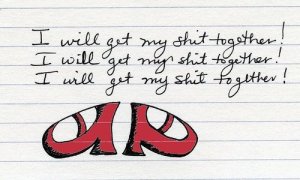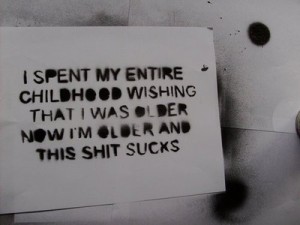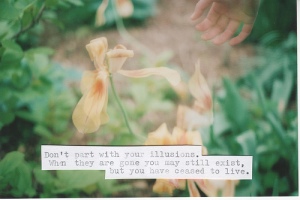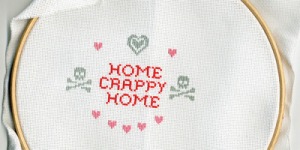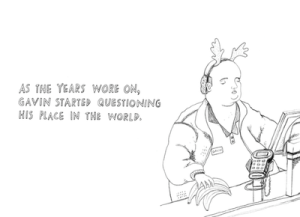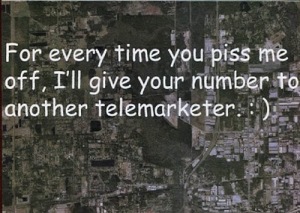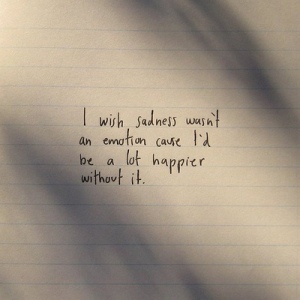Book: My Misspent Youth: Essays by Meghan Daum
This was easy breezy reading, which is nice for my current post-finals brain coma. She’s smart, funny, and just self-deprecating enough to be down to earth without throwing a pity party. It’s littered with English major jokes (as in, I was an English major and now I’m broke just like all the other English majors LOLOLOLOL!), which I enjoyed. As a collection, the essays are pretty disjointed and varied in terms of style, content, length, genre, etc, but she brings that up in the prologue and as far as I’m concerned her self-awareness makes it all okay. I also suppose it’s also very much a “generation” piece, which helps give it cohesion. Anyhow, it’s entertaining and smart and thoughtful. I’d compare her to Sloane Crosley, Jancee Dunn, David Sedaris, with maybe a little Chuck Klosterman in there.
———–
“If anything, this book is about not knowing what things are about and trying to sort matters out by using one’s personal experiences and observations as a tool.”
“stay speaking from experience,
the word aesthetic is a turn-off”
“the condition that I feel most strongly affects the way we as humans go about the business of living our lives: our habit of expressing ourselves through the trappings of particular ideas rather than through the substance of those ideas.”
“they are all about the way intense life experiences take on the qualities of scenes from movies.”
“the tendency of contemporary human beings to live no actual lives but simulations of lives, loving not actual people but the general idea of those people, operating at several degrees of remove from what might be considered authentic if we weren’t trying so hard to create authenticity through songs and clothes and advertisements and a million other agents of realness. In other words, this book is about a world ruled by accessories, about a citizenry that expresses its tastes, its politics, its dreams, and its heartbreaks via the trinkets on its shelves. “
“I am always warmed by an unsolicited gesture of admiration or encouragement, amazed that anyone would bother, shocked that communication from a stranger could be fueled by anything other than an attempt to get a job or make what the professional world as come to call “a connection.””
“I have a constant, low-grade fear of the telephone. I often call people with the intention of getting their answering machines. There is something about the live voice that has become startling, unnervingly organic, as volatile as incendiary talk radio.”
“email had become an electronic epistle, a yearned-for rule book. The black and white of the type, the welcome respite from the distractions of smells and weather and other people, had, in effect, allowed us to be vulnerable and passionate enough to actually care about something. It allowed us to do what was necessary to experience love. It was not the internet that contributed to our remote, fragmented lives. The problem was life itself.”
“It terrifies me to admit to a firsthand understanding of the way the heart and ego are entwined. Like diseased trees that have folded in on one another, our need to worship fuses with our need to be worshipped. Love eventually becomes only about how much mystique can be maintained. It upsets me even more to see how this entanglement is made so much more intense, so unhampered and intoxicating, by way of a remote access like email.”
“There are a few hold-outs from the “literary” camp, to be sure (the assistant may find herself remarking on the fact that here, in the world of books, “literature” is considered a category as specific as “hw to” or “occult”) but there seems to be a disproportionate number of Oprah bios, guides to better sexual relationships, and Near-Death Experience books, slugged for those on the inside as N.D.E. “A new N.D.E. title,” screams the publisher, dollar signs glowing in her contact lenses. “Isn’t this to die for?” To the publisher, N.D.E. means big excitement and big bucks. To the assistant it can also stand for “not doing editing,” or “not drinking enough.”
“We’re secretaries fully versed in Derrida, receptionists who have read Proust in French. This is a land of girls. There are always at least ten of “us” for everyone one of “him.” We’ve got decent shoes. We’ve got B.A.s in English from fancy schools, expensive haircuts, expensive bags, and cheap everything else. We’ve got the studio apartment with the half-eaten one-hundred-calorie yogurt in the mini-fridge. We’ve got one message flashing on the answering machine (it’s Mom again), bad TV reception, and a pile of manuscripts to read before bedtime.”
“It’s as if a sepia tint has been imposed onto a thoroughly fluorescent-lit world.”
“I’ve always been somebody who exerts a great deal of energy trying to get my realities to match my fantasies, even if the fantasies are made from materials that are no longer manufactured, even if some governmental agency has assessed my aspirations and pronounced them a health hazard.”
“I’ve historically been pretty good at getting by on what I have, especially if you apply the increasingly common definition of “getting by,” which has more to do with keeping up appearances than keeping things under control. Like a social smoker whose supposedly endearing desire to emulate Marlene Dietrich has landed her in a cancer ward, I have recently woken up to the frightening fallout of my own romantic notions of life in the big city: I am completely over my head in debt.”
“Self-entitlement has also contributed to my downfall, mostly because of my inability to recognize where ambition and chutzpah end and cold, hard cash begins.”
“Looking back, I see those years as a cheap, happy time. It was a time at which a certain kind of poverty was appropriate; anything ritzier would have been embarrassing.”
“Neither passenger nor pilot, the flight attendant is the liaison between the customer and the machine. She is somehow blonde even when she’s not blonde, a girl even when she’s a guy. Part bimbo and part Red Cross, she is charged with the nearly impossible task of calming the passenger down while evoking enough titillation to suggest that there remains, even in the twenty-first century, something special about air travel. “
“Just as air pressure will make one martini in the air equal two on the ground, the malaise of modern life extends its claws in cartoon-like proportions on an airplane. It’s a sickness aggravated by tiny bathrooms and recirculating air and laptop computers that allow no excuse to take a break from work.”
“While I can’t say that I had an unhappy childhood, I was unhappy being a child. Just as there has not been a morning of my adult life when I don’t wake up and thank the gods that I am no longer a kid, there was hardly a day between the ages of three and eighteen that I didn’t yearn for the time when I would be a grown-up. Aside from the usual headaches of being a kid—the restricted freedoms, the semi-citizenship—what really ailed me were the trappings of kid-dom: the mandatory hopscotch, the inane cartoons, the cutsey names ascribed to daycare enters and recreation programs, like Little Rascals Preschool and Tiny Tot Tumbling. Why was a simple burger and fries called The Lone Ranger? Why did something as basic as food have to be repackaged to resemble a toy? Even as a child I resented this lowbrow aesthetic—the alphabet-block designs on everything, the music-box soundtrack, the relentless kitsch of it all.
“I have always had a problem with science fiction and fantasy enthusiasts. Of all the subcultures that, for various neurotic reasons, provoke my disdain, none seem to bridle me quite as much as those comprised of people who appear to have forfeited real life for something they’re likely to characterize as “a quest.”
“Brian was a firm believer in not spending time doing anything that wasn’t enjoyable. The result is that he did very little; there was never much to enjoy.”
Filed under: Uncategorized, meghan daum
